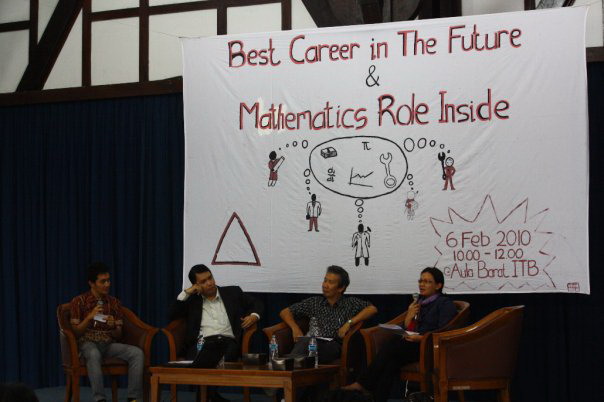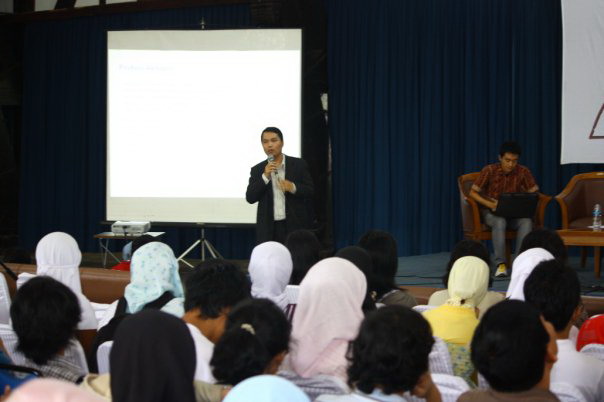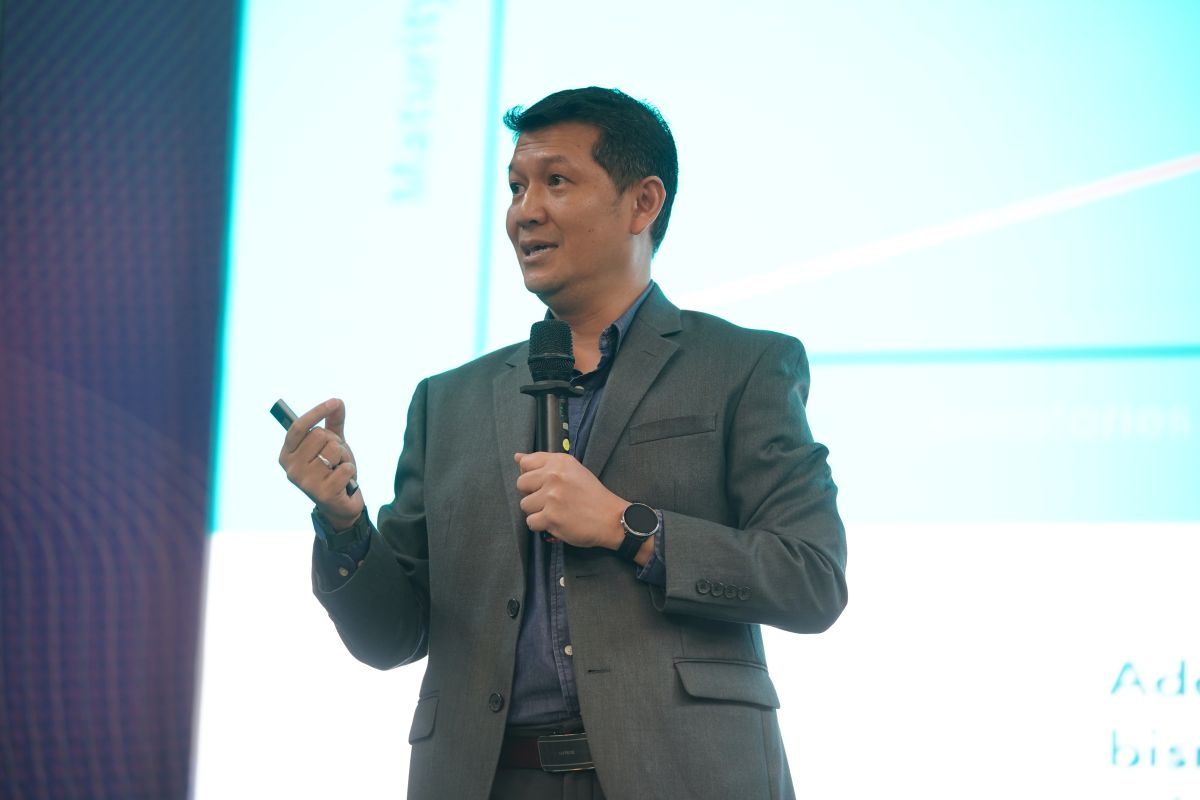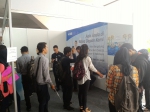ITB FAIR 2010: Make Your Best Career with Mathematics
By prita
Editor prita

 BANDUNG, itb.ac.id- Mathematics is a unique and fascinating thing to talk about, as it truly is close to our lives. This was brought up by an ITB mathematic lecturer, also as an expert staff of research quality guarantee and community service, Prof. Dr. Edy Soewono. He talked about mathematics in the Mathematics Seminar: Best career in the future and mathematics role inside, Saturday (06/02/10), in the West Hall of ITB.
BANDUNG, itb.ac.id- Mathematics is a unique and fascinating thing to talk about, as it truly is close to our lives. This was brought up by an ITB mathematic lecturer, also as an expert staff of research quality guarantee and community service, Prof. Dr. Edy Soewono. He talked about mathematics in the Mathematics Seminar: Best career in the future and mathematics role inside, Saturday (06/02/10), in the West Hall of ITB. Quite a number of people see mathematics as terrifying, hard to understand, and not lucrative. This paradigm makes young generations afraid to study mathematics, while in the last ten years job market for mathematics graduate are very wide. This is expressed by Ika Magdalena, Mathematics 2006, as the seminar coordinator when she was asked about the background of the seminar.
In the seminar, Prof. Dr. Edy Soewono responded on society perceiving mathematics as a hard thing. He believes that this depends on how teachers motivate their students. Although mathematics is not easy, teachers can motivate through mathematical models with an environmental approach. "Mathematics turn interesting when we link mathematics with daily problems by making the mathematical models for them," said Edy encouragingly.
Preventive and curative actions on Dengue Fever were taken as an example. He explained that with mathematics we can have an early warning system for dengue fever by making a mathematical model for it. Through the model we can find out whether an area is categorized as an endemic area, warning area, or safe area for dengue fever. The method is by taking samples from a population with the daily estimation of one patient to ten patients in a ten thousand people population. Based on the approximation, we make the algorithm required and make a program to watch for dengue fever in an area.
Prospect of an Actuary in Indonesia Other that computational mathematics, the prospect of a mathematic expert is also in the area of finance and actuary. The mathematic seminar also presented a famous actuary, Budi Tampubolon. Budi explained, "Actuary is a profession which estimates the possibility of a future action and analyzes the financial impact should the action happen."
Other that computational mathematics, the prospect of a mathematic expert is also in the area of finance and actuary. The mathematic seminar also presented a famous actuary, Budi Tampubolon. Budi explained, "Actuary is a profession which estimates the possibility of a future action and analyzes the financial impact should the action happen."
An actuary generally works in an insurance company. However, various companies are, at the moment, in need of actuarial services in their risk management, both in production and investment, while now Indonesia has a minimum number of actuaries. According to the data from Persatuan Aktuaris Indonesia (Indonesia Actuary Union), the number of actuaries in Indonesia in January 2010 is a mere 318 people. "The prospect of being an actuary is wide open. Not to mention the average salary of an actuary is 100 million rupiah per month," said Budi Tampubolon, responded with the audiences' amazed expressions.
All Indonesian actuaries are united in Persatuan Aktuaris Indonesia. And to be an actuary, several areas need to be mastered, which are Financial Mathematics, Probability Theories and Statistical Mathematics, Economy, Accounting, Statistical Methods, Actuarial Mathematics, Risk Theories, Professionalism Education, Expertise (Life Insurance, General Insurance, or Pension Fund), Actuarial Management, Investment Management.
Besides of the very wide prospect it has, the profession of an actuary is one that can never be replaced by a robot, because of the vast aspects need to be analyzed in order to find the solution of the problem an actuary has to solve.
Not Only In the World of Mathematics
In the seminar, Irma Savitri Widyasari, a mathematical practitioner working in a famous oil company, was also present. Irma talked on how mathematics train us to think in a well-organized an well-ordered manner. Wherever the job would be, a mathematic graduate already has this capability, which enables him to easily adapt with whatever profession he's going to do.
When she was asked about what is the best job, Irma answered, "The best job depends on whether or not the person enjoys doing it. There are no limitations on what is a good or bad job."
[Hastri Royyani]



.jpg)

.jpg)



